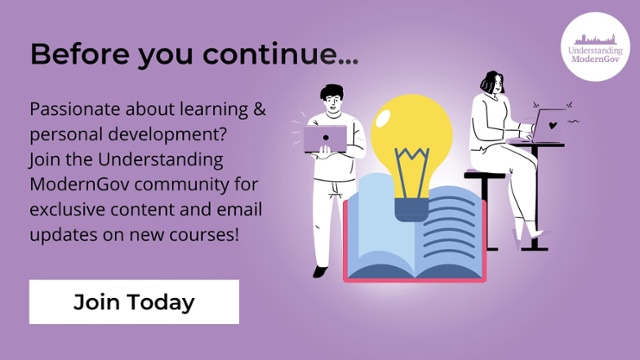4 Assertiveness Techniques That Prove You Don’t Need to be an Extrovert to be Assertive
Always dominant in social situations, uses a loud voice to be heard, must be an extrovert.
Heard of these? They’re just some of the common stereotypes around assertiveness.
Whether you’re an introvert or looking to generally improve your assertiveness in the workplace, discover what being assertive really means and 4 assertiveness techniques that prove you don’t need to be an extrovert to be assertive.
But first, you should know why assertiveness is important…
What is Assertiveness and Why is it Important?
Assertiveness is a self-assured quality that demonstrates confidence, not aggression. Those who are assertive are unafraid to express their own opinions and needs while respecting and actively listening to others.
Assertiveness is often confused with aggressive or passive qualities that consist of unhealthy behaviours like dominating conversations, being demanding and pushy in social situations and negotiations. These are not behaviours that are effective in the workplace.
But why is assertiveness important you ask? Here’s just 3 reasons…
1. Effective communication in relationships
2. Increases self-confidence through value and expression of own wants, needs, feelings and choices
3. Reduces conflict, stress and confusion
By applying more assertive behaviours and communication styles into your workplace and personal communications, you will become more impactful, allowing more time to focus on goals, not stresses and anger as needs and feelings will not go unmet.
Read: Abrasive or assertive: What’s the difference?
If you think of yourself as an introvert when it comes to communication, being assertive can prove difficult, especially if being direct and open with your needs isn’t your thing. But fear not, being assertive doesn’t have to be something just for extroverts.
Simply follow these 4 simple assertiveness techniques and you’ll be assertive in no time (even if you’re an introvert)…
1. Use active listening to your advantage
If you’re an introvert or someone who prefers to stay quiet in social or work situations to avoid conflict or please others, it’s likely your listening skills are top notch. As you’ve been sitting back in situations where you should be participating, you’ve grown used to understanding and respecting other people’s ideas and opinions – one of the most important parts of being assertive.
You can use your listening skills to respond in the most effective way, not just for the others in the conversation, but your own needs and desires and how they fit into the topic or conversation.
Learn more about the benefits of active listening and how to improve.
2. Script basic responses
Whether you’re a classic people pleaser or you often find yourself agreeing to requests before actually giving them proper thought, here’s some go-to responses that could change that…
- “Let me check my calendar first and then I’ll get back to you.”
- “Apologies, I’m not available then, could we reschedule for another time that suits us both?”
- “My workload is busy right now, let’s catch up tomorrow to prioritise tasks and optimise goals.”
In the workplace and personal life, you’re not obligated to say yes to everything or give an explanation to everyone you say no to. Listening to their request and finding an appropriate time for you to carry it out successfully shows you’re not forgetting about your own demands, and you’re also taking into account theirs. This is a great way to start setting clear boundaries, which those with a lack of assertiveness often find the hardest.
Don’t know how assertive you are? Take our quick-fire quiz to find out how assertive you really are in the workplace in just one minute.
3. Make imperfect decisions
One of the biggest hurdles to climb when learning to becoming more assertive is the ability to express opinions, even if they might be “wrong.” Often in a work collaboration environment, no answer is a wrong answer, but to someone who lacks assertiveness, it can be a big deal.
Let’s say you’re on your lunch break at work and your colleagues want to grab some lunch but can’t agree on one place.
Why not pick somewhere you like or suggest something they haven’t thought of? Don’t worry if it’s not entirely what other people may feel like, just say, “I’d like to try that Greek restaurant around the corner.”
You never know, they could love your idea, but don’t be disheartened if they are not too keen. The biggest thing to note is that you advocated for your desires.
Here’s one task to get started: the next time you go to a restaurant and are shown to your seat, ask for a different table.
Hint: no one will hate you; this is perfectly acceptable and normal – just don’t use aggressive or passive behaviours!
It may feel uncomfortable for you and the people around you who are used to less assertive behaviour, but this is something you should expect and not let it catch you off guard.
4. Attend a training course to upgrade your assertiveness skills
An assertiveness course may sound daunting, but it’s one of the best ways to gain those key skills and techniques that will boost your assertiveness and help find your voice.
Here at Understanding ModernGov, our Confident Communication and Assertiveness course is one of our long-running training courses that has helped hundreds of delegates learn assertive best practices. Not only will you acquire healthy confidence to stand up for your beliefs and ideas, you’ll also be trained by our Communications Coach, Anne Walsh, who gives expert feedback through role-play scenarios and practical workshops.
Although different reasons to attend this course may be apparent, all delegates on this course hope to gain one thing - assertiveness and the ability to become an advocate for themselves in the workplace.
You can't become assertive overnight, but by taking small steps and practicing assertiveness every day, you will begin to see the change in how people respond to you and your needs.
Want to Boost your Self-Confidence? Look no further
There’s no more impactful way to boost your self-confidence than a verbal communications training course.
Whether you want to communicate more confidently in the workplace, improve your presentation skills or learn how to speak with greater impact in team meetings. View our range of verbal communication courses and secure your place to avoid missing out on bundles of insights.




.jpg)

-Feb-07-2024-11-52-51-0705-AM.jpg)